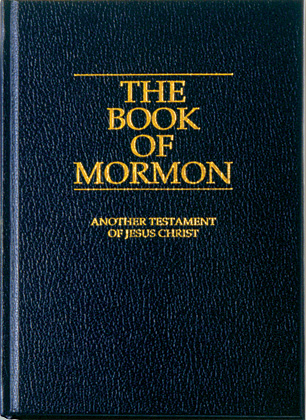Nephi was the second prophet of the Book of Mormon. He foresaw in visions that the time would come when his people would disappear from the earth through their own wickedness. He also knew the record he started, which would come to be known as the Book of Mormon, would survive, hidden away until a future time. The words he and the prophets who came after him would be saved:
16 For those who shall be destroyed shall speak unto them out of the ground, and their speech shall be low out of the dust, and their voice shall be as one that hath a familiar spirit; for the Lord God will give unto him power, that he may whisper concerning them, even as it were out of the ground; and their speech shall whisper out of the dust. (2 Nephi 26)
What does this scripture mean? It means that the Book of Mormon is indeed a companion book to the Bible, which would help to testify of the Bible and of Christ.
“. . . A careful reading of this scripture, particularly when read together with Nephi’s explanation, would indicate that the term it ‘hath a familiar spirit’ means that this record (the Book of Mormon) would speak with a ‘familiar voice’ to those who already have the Bible. In other words, Nephi is evidently saying here that the doctrinal teachings of the Book of Mormon would seem familiar to people who had already read and accepted the Bible” (Daniel H. Ludlow, A Companion to Your Study of the Book of Mormon, p. 146, quoted in Institute of Religion lesson manual on the Book of Mormon).
Those who learn about the Bible by actually reading the Bible, rather than simply hearing about it from others, know the contents well. Those who learn about the Book of Mormon by actually reading the Book of Mormon, rather than letting others tell them what is in it, will find that what they read in the Book of Mormon compliments what they read in the Bible.
Too often, people prefer to avoid the actual source. In school, we learned to go to the original source for information, not to get our information from secondary sources. The more layers a piece of information goes through, the more opportunity there is for error to creep in, intentionally or unintentionally. Suppose someone wanted to know what sort of person you are, what you believe, and how you act. Would you want them to go to your enemies, to people who don’t know you very well, or people who have learned about you only through gossip? No, of course not. You’d want them to go directly to you. Who is better qualified to tell someone about you than you yourself?
The Book of Mormon can stand alone. While commentary like mine can help you to notice the messages the Book of Mormon has for you, the best way to learn what is in it is to read it yourself. If you’ve also read the Bible yourself, it will feel familiar to you.
Read with an open mind and heart, putting away whatever you’ve heard from others and just read, opening a communication between yourself and God. Ask Him to guide your thoughts and your impressions, and to reveal to you whether or not it’s true. When you and God read the Book of Mormon together, you will be able to know for yourself it is true. You’ll learn more about the Savior you love, and about your Heavenly Father. You may even learn more about yourself.
Give it a try. You can read it free online, or request a free copy to be delivered to you without obligation.
The late Terrie Lynn Bittner—beloved wife, mother, grandmother, and friend—was the author of two homeschooling books and numerous articles, including several that appeared in Latter-day Saint magazines. She became a member of the Church at the age of 17 and began sharing her faith online in 1992.


